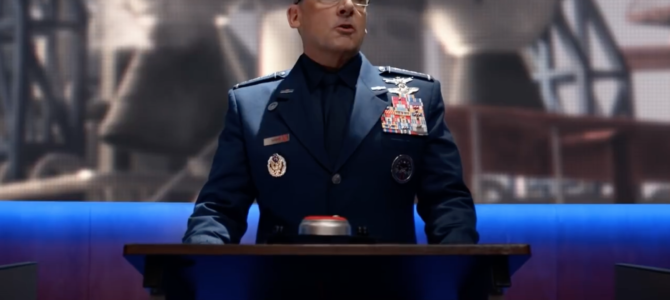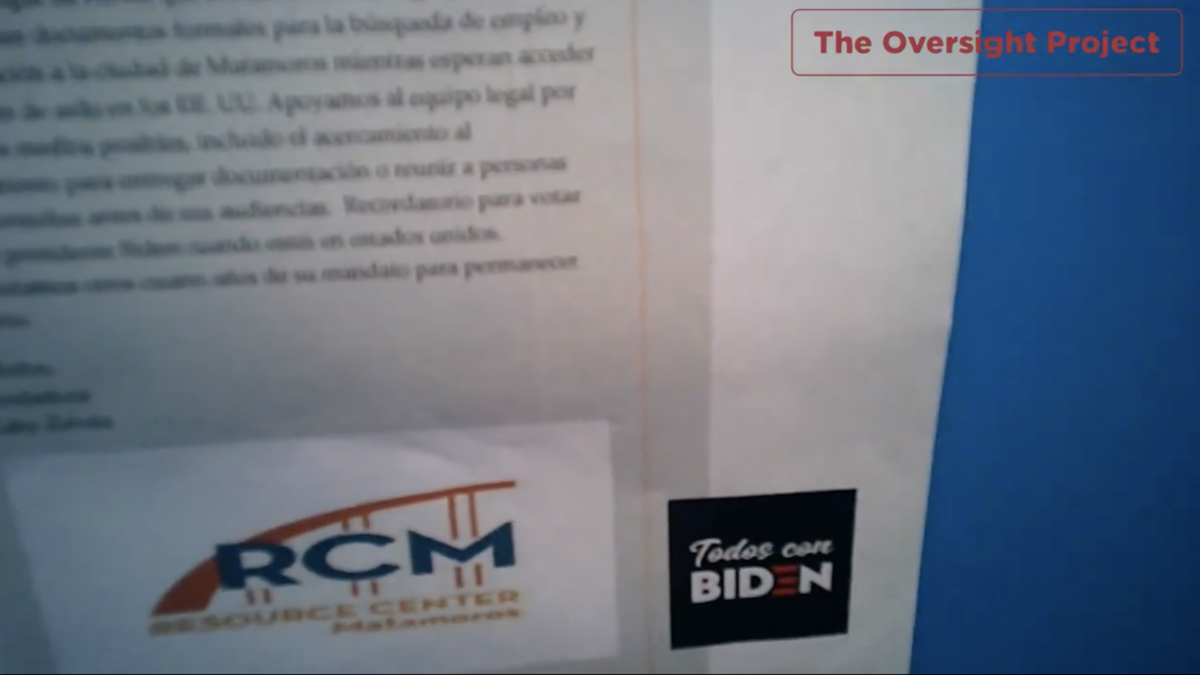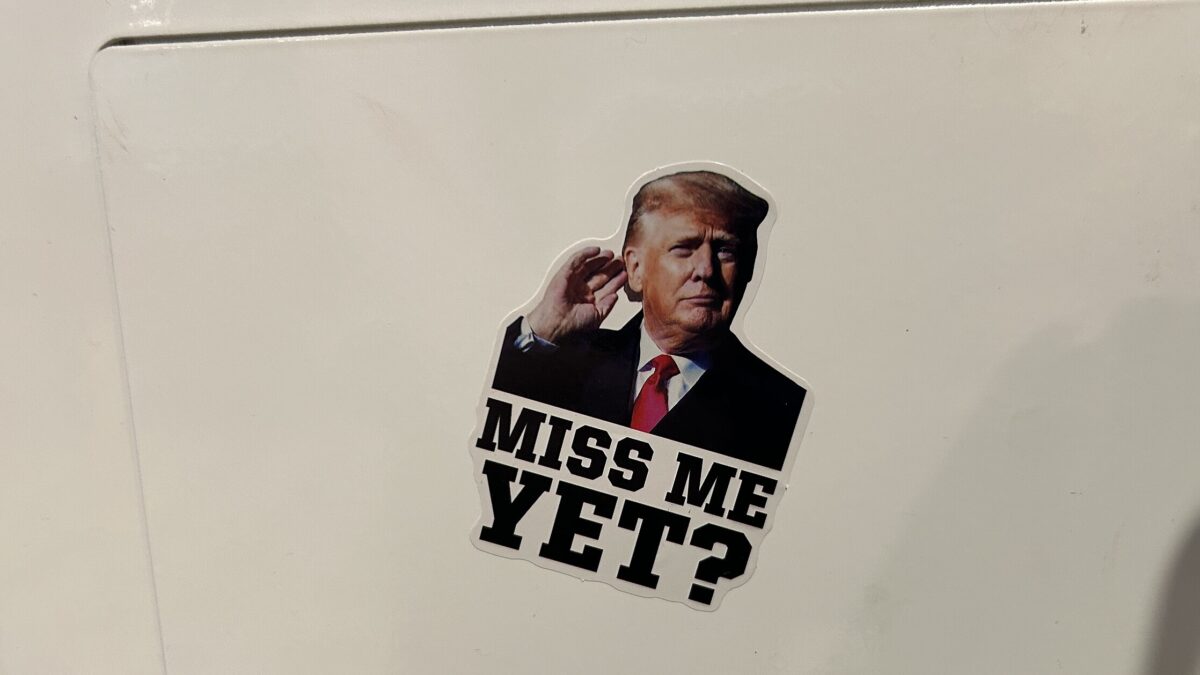
When President Trump announced in 2018 his administration’s intention to launch a new branch of the American military, Space Force got a lot of laughs. It probably got more laughs than the new Netflix show “Space Force,” in fact, which stars Steve Carrell as the four-star General Naird. That Trump’s new Space Force managed to capture the American imagination—even just a little bit in this maddeningly bizarre timeline—means he was on to something.
Naird is the newly minted head of “Space Force,” tasked by POTUS with getting boots on the moon by 2024. While his wife, played by Lisa Kudrow, is in prison for some unclear reason, Naird is raising a teenage daughter (Diana Silvers), and trying to run an operation that in years past would have been headed by Leslie Neilson.
While “Space Force” is definitely intended as a satire, it makes some compelling points about the essential nature of exploration. The show is a comedy, so it doesn’t dig into the tech or how it all works. There are no deep dive into specs, like on “Star Trek.” The goal of Naird and his “Space Force” mission is also a wildly ambitious undertaking: building a base on the moon in record time. The show features heavy pushback from press and Congress as to whether that can actually happen, or if it’s even a good idea.
But just as Space Force has come to fruition in real life, Carrell’s “Space Force” measures up. As a comedy, it takes a while to get going, but what the show lacks in outright belly laughs, it makes up for in follow-through. Much like the current administration, it eschews technical explanations in favor of just getting stuff done.
What Is ‘Space Force’ All About?
[SPOILER]
The series promises a moon base, and before the first season is out, “Space Force” lands astronauts, or “spacemen” as Naird insists on calling them, on the Earth’s original satellite. Paired with Naird is Dr. Adrian Mallory, played by John Malkovich. Mallory initially questions Naird’s facility for the position of Space Force general. His main interest is in the science and innovation required to safely and successfully colonize the moon.
While the two clash for much of the season, Mallory comes around during a congressional hearing before some caricatures of Reps. Alexandria Ocasio-Cortez and Nancy Pelosi. Naird tells Congress that “space is hard,” and the AOC-style Anabela Ysidro-Campos (Ginger Gonzaga) suggests that very sentence should be Space Force’s new motto.
Ysidro-Campos questions Naird on the viability of his mission, as well as the need for an extensive budget, pointing out that a single orange, once all is said and done, costs taxpayers $10,000. In response, Naird says:
One thing you learn in the military is that money doesn’t matter. People matter. Thousands of people working tirelessly day and night who we may have spent a billion dollars to put one astronaut in a position where they can do something that will benefit everybody. And that one astronaut may be a human being who is risking her life in a very dangerous pursuit. A human being who is not doing it for the money, by the way. A human being who is battling fear, and exhaustion, and uncertainty. And who has been eating dehydrated mac n’ cheese mixed with her own filtered urine for the last month. I want her to have a taste of the earth. And remember what she’s fighting for.
This speech brings Mallory around to Naird’s side, and is probably much of the point of the real Space Force as well. Space exploration is not about conquest, but about exploration, about dreams, and curiosity. We travel where we have not been simply to see what’s there, so that we have more understanding of the universe, and to become more in awe of this unbelievable creation in which we live.
The Show Is Likable, Although Bizarre
In essence, this is a workplace comedy, which Carrell knows something about. The personalities and characters are cleverly written, and in lots of instances, the show is bizarre and surreal.
There’s a scene in which Naird and his command team realize they’ve left some animals in a spaceship orbiting earth. These include a monkey, a dog, and a bird. They bring in the monkey’s trainer to try and get the monkey to perform some complicated maneuvers, and a space walk in an attempt to fix the solar array of a satellite. The monkey scene is long, and the longer it goes on, the stranger it becomes to see an extended conversation between Naird and the animal.
Ultimately the monkey finds himself alone in space, tasked with repairing a vital piece of technology, with no way home, on a death mission, and freaks out before spinning off into space to meet his final fate. It’s weird.
There are more surreal moments, as in a scene where the spacemen engage in war games, and one of them is definitely speaking Klingon. There’s also a part where John Malkovich sings a love song to a man he only knows from watching in a lunar simulation. “Space Force” really commits to its concept, and goes all in on these moments. That can be off-putting, but I kind of liked it.
The mission of Space Force, however, always remains front and center, and somehow this team—using duct tape, bubble gum, and shoelaces—manages to pull the mission off. While the country heaved and wretched over the death of George Floyd, Space X launched its first manned mission, on the same weekend “Space Force” landed on Netflix. While the space mission was overshadowed by what was happening on our streets and in our cities, its effects on the imagination, the dream of exploration, and the future of humanity will be more lasting than the division over our differences.









